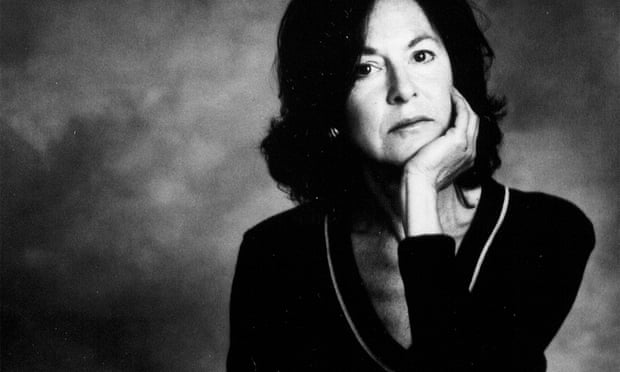Democrats outraged as Trump halts Covid stimulus talks until after election Pelosi: Trump ‘putting himself first at expense of the country’ President later offers to sign off fresh round of stimulus checks
Louise Glück wins the 2020 Nobel prize in literature The Swedish Academy has chosen the American poet, citing her ‘unmistakable poetic voice’ ..... One of America’s leading poets, the 77-year-old writer has won the Pulitzer prize and the National Book Award, tackling themes including childhood and family life, often reworking Greek and Roman myths. ........ comparing her to Emily Dickinson with her “severity and unwillingness to accept simple tenets of faith”. ......... She said the winnings – 10m Swedish kronor (£870,000) – would help her buy a home in Vermont. “But mostly, I am concerned for the preservation of daily life, with people I love … it is disruptive. The phone is ringing now, squeaking into my ear.” ........ “She is a very quotable poet – you can look her up on Instagram,” Clanchy said. “But it’s worth noting that her resonant aphorisms are always spoken by ironised voices – a wild iris, for example. Her poems are austere, difficult, very much alive. I’ve always admired her.” ........... Born in New York City in 1943, Glück grew up on Long Island and attended Columbia University. She has taught poetry in many universities, and is currently an adjunct professor of English at Yale. .......... “you have to live your life if you’re going to do original work”, because “your work will come out of an authentic life, and if you suppress all of your most passionate impulses in the service of an art that has not yet declared itself, you’re making a terrible mistake”. ........ had “no concern with widening audience”, and that she preferred her audience “small, intense, passionate”. ........ “astonished at the justice of the win”. .......... “She’s not a cheerleader. She’s in no way a voice for any cause – she is a human being engaged in the language and in the world. And I think there’s this wonderful sense that she is not polemical, and maybe this is what’s being celebrated. She’s not a person trying to persuade us of anything, but helping us to explore to explore the world we’re living in. She’s a clarifying poet. There doesn’t seem to be much political engagement in her poems. They’re really about the individual human being alive in the world, and in the language.” ......... the prize was moving away from a Eurocentric, male-oriented focus.
There was
a peach in a wicker basket.
There was a bowl of fruit.
Fifty years. Such a long walk
from the door to the table.
........ classic Glück, distilling time, beauty, and emotional ambivalence in a single clarifying gesture. ......... Through decades of Anglo-American poetry alternating between over-intellection and misery-memoir confession, Glück has continued to write poetry that is accessible, despite its huge sophistication. ........ She’s neatly shown a path through the canon for everyone who feels themselves excluded by that white male norm we should be past questioning. ........
A child draws the outline of a body.
She draws what she can, but it is white all through,
she cannot fill in what she knows is there.
Within the unsupported line, she knows
that life is missing…
........... “Even now this landscape is assembling. /The hills darken. The oxen /sleep” ..........
She draws what she can, but it is white all through,
she cannot fill in what she knows is there.
Within the unsupported line, she knows
that life is missing…
........... “Even now this landscape is assembling. /The hills darken. The oxen /sleep” ..........
and the seeds
distinct, gold, calling
Come here
Come here, little one
distinct, gold, calling
Come here
Come here, little one
.......... “The city rose in a kind of splendour /as all that is wild comes to the surface” .......... “The fundamental experience of the writer is helplessness,” she tells us in th essay Education of a Poet; their life “is dignified, I think, by yearning, not made serene by sensations of achievement. In the actual work, a discipline, a service.”

No comments:
Post a Comment